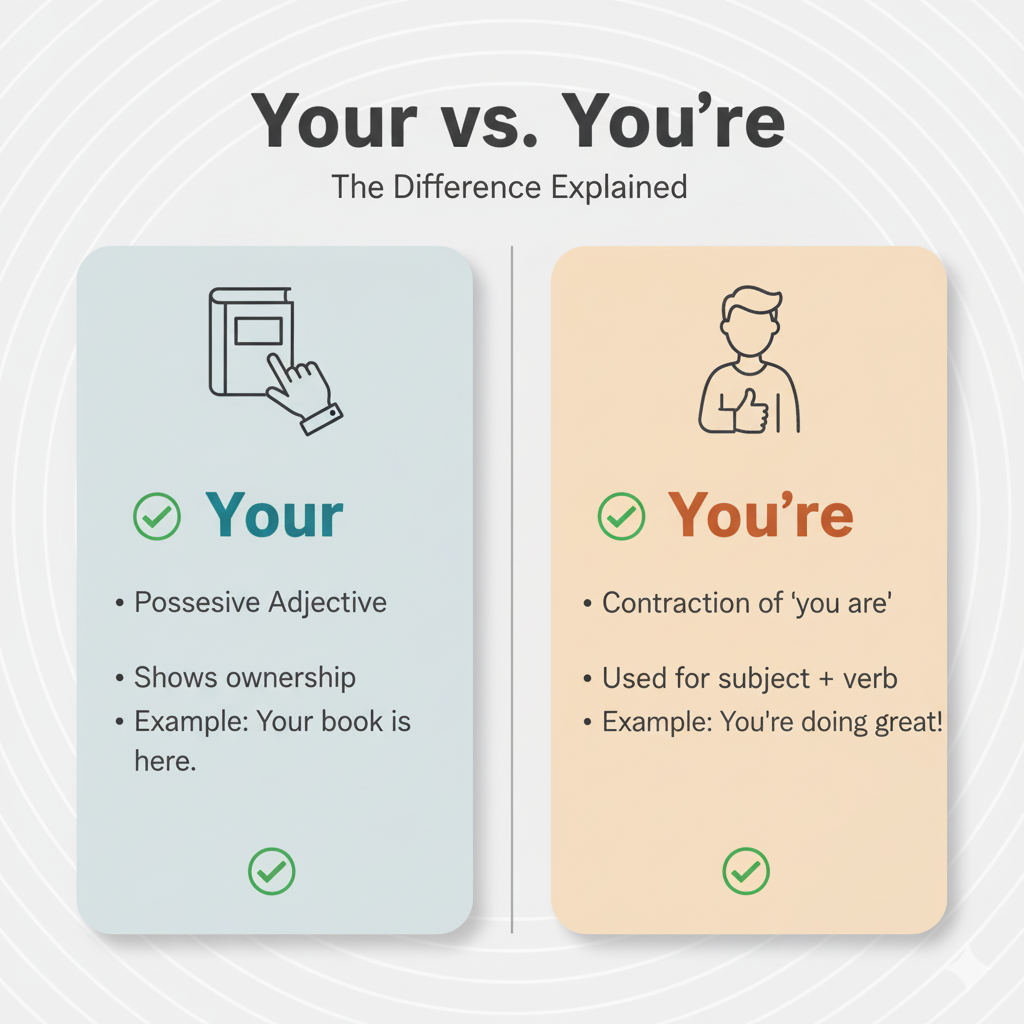“Your” vs. “You’re” - What’s the Difference?

English can be tricky, especially with words that sound the same but have different meanings. Your and you’re are two of the most common examples. Midoo AI is here to help!
Today, we’ll break down the difference between these two words, provide clear examples, and give you tips to use them correctly.
Your – Showing Possession
Your is a possessive adjective. It shows that something belongs to you.
Examples:
- Is this your bag?
- I like your shoes.
- Your phone is ringing.
- Don’t forget your homework.
- Can I borrow your pen?
Tip: If you can replace the word with my, his, or her, then your is correct.
You’re – Contraction of “You Are”
You’re is a contraction. It is short for you are.
Examples:
- You’re going to love this movie.
- I think you’re very talented.
- You’re late for school!
- Are you sure you’re ready?
- You’re doing a great job.
Tip: If you can replace the word with you are, then you’re is correct.
Quick Trick to Remember
- Your → possession (“your book”)
- You’re → contraction of “you are” (“you’re amazing”)
Midoo AI recommends practicing with short sentences every day. Reading carefully and checking if you can replace it with “you are” will save you from mistakes.
FAQs
Can “your” and “you’re” ever be used interchangeably?
No! They have completely different meanings. Using the wrong one is a common mistake but changes the sentence meaning.
How do I remember which one to use?
Ask yourself: Can I say you are instead? If yes → use you’re. If not → use your.
Are there any tricky sentences I should watch out for?
Yes! For example: Your going to love this movie. → Incorrect. Correct: You’re going to love this movie.
Does this rule apply in informal text messages?
Even in text messages, it’s best to use them correctly. Misusing them can make your writing look sloppy.
Why do people confuse these words so often?
Because they sound exactly the same, but one shows possession and the other is a contraction. Reading carefully and practicing examples is the key.
Conclusion
Using your and you’re correctly is simple once you know the trick. Midoo AI suggests writing a few sentences each day and labeling them as your or you’re until it becomes natural.